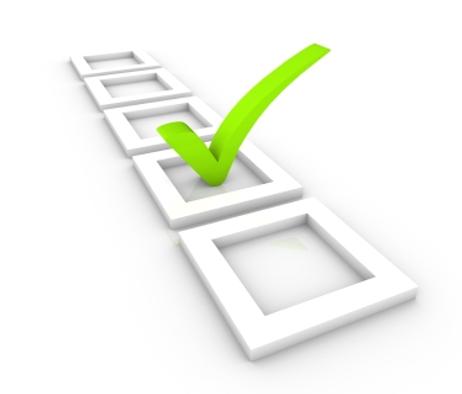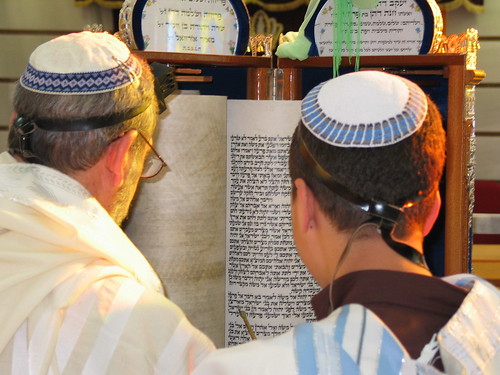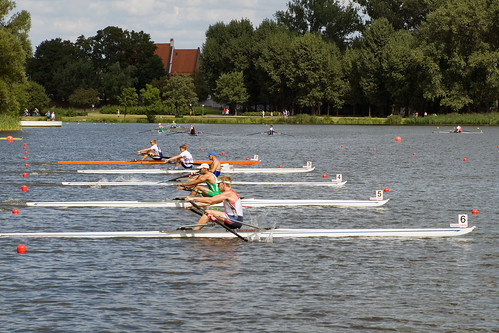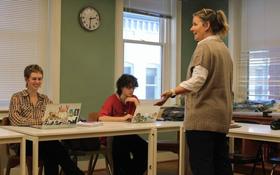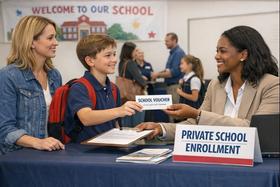The Private School Advantage: The Top Reasons To Send a Child To Private School
Are you thinking about sending your child to a private school?
- There are many reasons why you should consider sending your child to a private school.
- Most of us parents have had the same concerns as you do.
- We all want our children to receive the very best education possible so that they are positioned for success in later life.

Here's how to make that happen.
1. You want your child to receive specialized instruction from well-qualified instructors.
- Your local public school can develop an IEP or Individualized Education Program for your child.
- This is mandated by the Individuals with Disabilities Education Act.
- While your child's needs will indeed be identified and an instructional program devised for her, she will probably not receive as much individual attention as if she were in a private school with smaller classes.
- Depending on your area's public school district, resources are often spread very thin.
- When you send your child to a private school for special needs, she will be taught by credentialed, highly skilled teachers and paraprofessionals throughout the school day.
This video explains an IEP.
When your child has a learning difference, enrolling her in a private school with specialized teachers can be beneficial. I know this was the case with my eldest son who had never learned how to read before he came to live with us.
- Hundreds of private schools specialize in teaching children with dyslexia, ADHD, and learning differences.
- Class sizes are small. Schools can tailor programs to meet each student's specific needs.
If your child learns differently, explore your private school options online. You will have hundreds of schools to choose from.
- For the primary and middle school grades, finding a school in your local area makes the most sense.
- For high school grades, going off to a boarding school, which builds on the foundation you have carefully laid out, makes excellent sense.
- Teens are incredibly sensitive and insecure.
- Learning differences in a school where they might feel uncomfortable or ostracized will not help them later in life.
- Being surrounded by a community of teachers, staff, and students who will support your child and show her how to meet challenges is probably a better solution.
Incidentally, consult your tax adviser as some of the special needs school's tuition may be tax-deductible. I am not an attorney and make no representations about how the tax laws apply in this situation. Ask your tax adviser.
2. You want your child to be able to take college preparatory academic courses.
Rigorous academic programs such as Advanced Placement and the International Baccalaureate Diploma Programme are commonly found in private schools.
Advanced Placement
- Compare the AP courses offered in your local public high school with those offered at local day schools and boarding schools.
- There are some 34 AP courses.
- Most schools will provide between 10 and 20 AP courses to choose from.
- If you anticipate your child needing or wanting to take a not commonly offered AP course, a private school might be your best solution.
- AP courses are most effectively taught by trained teachers experienced in presenting their subject matter.
This video ranks AP courses by difficulty.
International Baccalaureate Diploma Programme
As its name implies, the International Baccalaureate has more of an international or global approach. The IB headquarters are located in Geneva, Switzerland.
- The IB programs cover both primary and secondary education.
- A school must be accepted and approved to offer the IB diploma programs.
- You can't just decide that you are going to take IB examinations.
- You must attend a school that offers the IB program. Interestingly enough, most schools offering the IB program are public schools.
- If you live in a part of the country where your local public school offers an IB program, you are in luck.
AP and IB are all about academic achievement and excellence.
- Children achieve academic excellence by stretching themselves, by studying harder, and by doing more scholarly work than they ever thought possible.
- Learning to do your very best in grade school and high school is excellent preparation for later life.
3. You want your child to be educated according to specific religious beliefs.
Your religious beliefs often play a crucial role in deciding whether to enroll your child in a private school.
- By law, religion is not part of a public school education.
- If bringing your child up with a strong religious education component is crucial to you, you will find many private school options available.
Keep in mind that religious education can differ significantly between private schools. Some schools place a strong emphasis on teaching their specific religious beliefs.
- Daily classes and worship will be a part of the routine and will be required.
- At the other end of the spectrum are schools affiliated with one religious sect or another.
- Many are even non-denominational. It is really up to you.
Passing on religious beliefs and traditions is more than a ritual at a religious school.
![]() by n0nick
by n0nick
Do you want your child to receive her religious education in full strength, medium strength, or light?
- Private schools offer a wide variety of options.
- The only downside is that most religious schools are day schools.
- So, where you live will be a determining factor in deciding which school is the best fit for your requirements.
Most schools with a strong religious education component also have rigorous academic programs.
- As always, don't assume anything about the religious components at a school.
- Do your due diligence. Ask questions.
- Ensure the school's programs and teachings match your needs and requirements.
4. You want your child to be part of a strong sports program.
Due to budget constraints and funding challenges, some public schools have faced difficulties in maintaining their athletic programs, leading to reductions or eliminations in certain cases.
- Many school districts are currently facing significant financial challenges.
- Sports and arts programs are usually areas where most districts feel they can cut expenses.
On the other hand, private schools historically have made sports an integral part of their educational programs.
- Most private schools think sports are part of a balanced approach to education.
- Indeed, some elite private schools boast athletic facilities and programs that rival, or even surpass, those of many colleges.
Rowing or crew is popular at many private schools.
![]() by Ainunau
by Ainunau
Be clear about what you are looking for.
- Suppose you need sports as an exercise component in your child's education.
- In that case, sports activities are available at every private school, both day and residential.
- If you seek a higher standard of play and performance, you will want to examine individual athletic programs very carefully.
For example, if you want your child to play varsity hockey or do crew, do your due diligence carefully. Do that initial inspection online.
- In most cases, schools will post news of their athletic events and scores almost in real time.
- You will find galleries of photos that will showcase the depth and breadth of the school athletic programs.
- If you are not an expert in the sport your child is passionate about, seek the professional advice and counsel of an expert.
- Enrolling your child in a school that initially seems ideal, only to realize within weeks that it's a poor fit, can be a difficult situation to navigate.
- Seek advice from an educational consultant who will know which schools will be a good fit..
Conclusion
These are my four top reasons to send your child to a private school.
- There are other reasons, of course, why you might be considering a private school.
- Factor those into your thinking as well.
Finally, don't forget to
- Start choosing a school as early as possible, but not much later than 18 months before the fall entry date.
- Think about hiring an educational consultant.
- These professionals know their schools.
- Their advice and assistance will be invaluable in helping you select the right school for your child.
Questions? Contact us on Facebook or Instagram. @privateschoolreview
#PrivateSchoolAdvantages #SpecializedInstruction #AdvancedPlacement #ReligiousEducation #SchoolSportsPrograms

